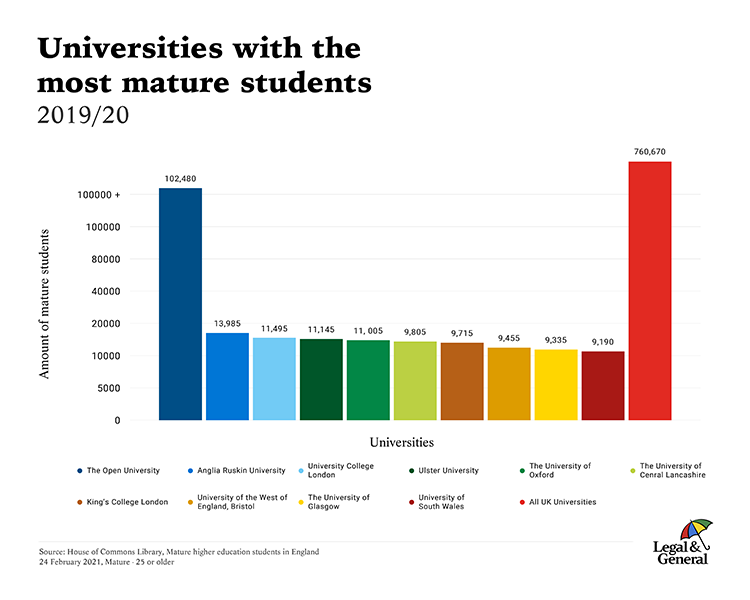Life expectancy in the UK has been steadily rising. With nearly a third of the UK population now over the age of 55 and the average person expecting to live to 81, many of us can look forward to a long and fulfilling retirement. One option is going back to university as a mature student and continuing to learn in the “third age” of life.
Later life learning: a growing trend
Freed from the pressures of choosing a career, we can often study for simple pleasure. In fact, Morris and McVitty write that older students are more likely to choose subjects based on an interest in their subject than younger students.
Does older mean you’re wiser? Anecdotally, yes. “Many mature students have had extensive careers and come to university with transferable experience of planning their time, organising people and projects, working in groups and presenting to audiences,” say Morris and McVitty. “This experience is beneficial for all students and helps to shape the culture of learning at any institution.”
According to science, later learning is good for us
Rosetta’s story
“Before retirement I completed an Honours degree in Psychology, achieved a first-class Arts degree and a Teaching Diploma. When I came to retire, I wanted to put these to good use,” she explains. “I wanted to combine my love of arts and psychology to help people, so went on to study Medicine and the Arts at University of Cape Town and Caliche Hospital. I wanted to become an arts therapist. When I completed this course, I went on to work with Syrian child refugees who had terminal bowel cancer.”
Best universities for mature students
The Open University
According to the House of Commons Library, distance learning is overwhelmingly popular among older students.
The Open University is an excellent option, and one of the best-known distance learning institutions in the UK.
It offers over 200 qualifications and 400 modules that can be tackled from the comfort of your own home.
Why distance learning could work for you
- If you’re still working or have other commitments, distance learning is more suited to fitting around this. It offers a far more flexible and personalised schedule.
- You get all the benefits of later learning, including mastering a new skill, without the time commitment of travelling to a physical location.
University of the Third Age

That said, if you would prefer a less formal environment, University of the Third Age (u3a) is a university with a difference. Once you become a member, you choose your local learning group from over 1,000 across the UK.
Memberships costs on average less than £20 a year, and you’re quickly put in contact with likeminded students pursuing interests similar to yours. There are hundreds of subjects to explore, from art to zoology and everything in between, and groups meet up in person or online to discuss and learn together.
With 450,000 members and growing, the u3a model has been a great success, and it’s open to anyone who no longer has the commitment of full-time work.
What else you need to know about being a mature student
Later life learning has steadily been on the rise for the last 40 years, and as we live longer and richer lives, this trend is only likely to increase.
So here’s a summary of what you could look forward to, by returning to learning:
- Later life learning plays an important role in keeping our brains active and healthy
- As an older student, you’ll bring transferrable – unique – skills to the classroom
- You’ll be part of a growing group of people returning to university later in life
- You’re more likely to choose a course you’re interested in
And here are three points we haven’t mentioned yet:
- There’s no upper age limit to any university in the United Kingdom
- You can apply for a student loan at any age, and use this to cover tuition fees
- Full-time students of any age are exempt from paying council tax and you may well be eligible for student discounts – including on public transport
Like the body, our brains benefit from exertion – and there’s no better way of exerting yourself than jumping back into education and learning a new skill.


